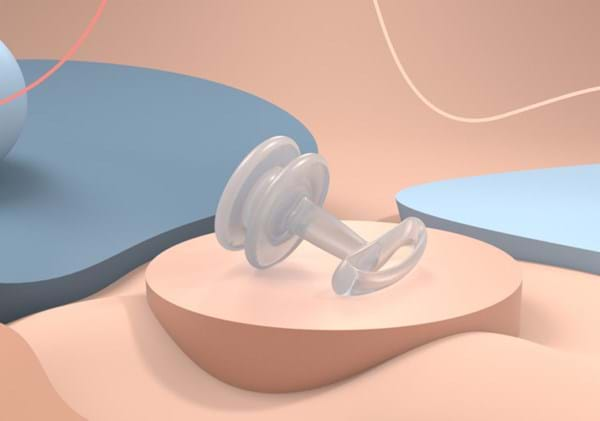Shame
Do you feel shame? Elaine Miller – part 6
Women’s bodies and shame tangle together in a confused mass, which has been either reflected upon or exploited since Eve was embarrassed by her nakedness in the Garden of Eden.
Shame, embarrassment, and stigma prevent women from speaking about their incontinence – if you can’t talk about it, how can you share your worries with your GP?
The words I hear most often in clinic are “I’m sorry” – and it makes me sigh. Women apologise to me for how their body looks, for having body hair, for menstruating, for fear of odour – and usually, for all of those. There is no need to apologise for your body in a clinic, or, frankly, anywhere.
If we get it wrong, and you feel ashamed during an assessment, then that is our fault, not yours. Healthcare professionals tend to be people who are good at communicating, but, we don’t always get it right (1).
People often see illness or injury as shortcomings, particularly when the problem is with our genitals. Exposing our physical and psychological vulnerabilities to a clinician can feel humiliating – and even if that is the last thing that healthcare professionals intend the impact on the patient remains the same (2).
About half of patients experience shame because of something a doctor said to them (3) Naturally, if you feel embarrassed, you are going to avoid appointments and answering questions (1).
This is seen in the success of the “Embarrassing Bodies” program which covered 120 conditions and attracted over 4 million viewers every week. What is embarrassing for one person is not at all for another – we know that many women don’t tell family or friends that they are having treatment to prevent speculation about their sexual activity and whether they might have a sexually transmitted infection (4).
I have yet to be horrified by anything I have seen or heard in clinic. Nothing is new to nurses, doctors or physios – if you’ve got hair like fur to your knees, groomed into shapes or totally bare – we don’t care, we are just delighted that you came for help. We ask questions so we can do the right tests and find a solution for you, we are not judging your appearance or your lifestyle. We just want to get your treatment right.
What DOES shock me is that 60% of women were unable to identify a vulva on a diagram. (5) If women don’t understand our own bodies, then we are more likely to be revolted by its normal functions.
Incontinence is common, it’s not normal, but very common (6). Would you be embarrassed if you had athlete’s foot, asthma or an ear infection? None of those is as common as leaking – so, woman up and bring your bits to clinic.
Not seeking help is problematic. Even small amounts of leaking affect women’s wellbeing. They stop exercising or having sex for fear of embarrassment (7).
That is frustrating because we know that most women with stress incontinence can be helped. We also know that if a woman is leaking 12 weeks after having her baby, she is likely to still be leaking when the baby is 12 years old. This doesn’t go away because you are too mortified to speak to anyone about it (8)(9).
Lists can help. Put what you would like to discuss, with the thing that is most important to you first on the list. Say how this impacts on your life – what does it stop you from doing, what do you worry about, how does it make you feel? Practice saying it out loud at home, and if you practice saying it to someone you trust then perhaps you could take them to the appointment.
You will be asked more questions about the symptoms and how long you have had them:
- Are they there all the time or do they come and go?
- How long do they last?
- Do they happen at specific times?
- Do they cause pain – and if so, what is the pain like and where is it? Have you found anything that helps?
- Does anything make it worse? Do they stop you from working, exercising, sleeping or having sex?
- Are you taking any medication?
- Is there anything else that might be affecting you?
Afterwards, ask yourself whether you were able to say everything that you wanted to.
Please, don’t apologise for having needs and worries. Shame is not useful, swallow it and come to clinic. We really want to help find out why you are leaking. I’ll see you there.
References:
(1) Shame and Humiliation in the Medical Encounter Aaron Lazare, MD Arch Intern Med. 1987;147(9):1653-1658. doi:10.1001/archinte.1987.00370090129021
(2) Scand J Prim Health Care . 2007 Jun;25(2):69-74. doi: 10.1080/02813430701237721. Avoiding Humiliations in the Clinical Encounter Kirsti Malterud 1 , Hanne Hollnagel
(3) Journal of Basic and Applied Social Psychology, vol 31, 2009, issue 4 Shame in Physician–Patient Interactions: Patient Perspectives Christine R. Harris & Ryan S. Darby Pages 325-334 https://www.tandfonline.com/doi/abs/10.1080/01973530903316922#.Ut6ofWQo4y4
(4)Rashidian, M., Minichiello, V., Knutsen, S.F. et al. Barriers to sexual health care: a survey of Iranian- American physicians in California, USA. BMC Health Serv Res 16, 263 (2016). https://doi.org/10.1186/s12913-016-1481-8 https://bmchealthservres.biomedcentral.com/articles/10.1186/s12913-016-1481-8
(5) Eve Appeal https://eveappeal.org.uk/news-awareness/know-your-body/
(6) prevalence – which stats do you use? ICS, or your own?
(7) even LBL affects wellbeing, Smith 2016: https://bmcurol.biomedcentral.com/articles/10.1186/s12894- 016-0140-z
(8)76% of women who leak at 12 weeks postpartum will leak at 12 years MacArthur 2016 https://pubmed.ncbi.nlm.nih.gov/25846816/
(9) Int Urogynecol J. 2017 Mar 14. doi: 10.1007/s00192-017-3309-4. Pregnant women's awareness, knowledge and beliefs about pelvic floor muscles: a cross-sectional survey. Hill AM1, McPhail SM2,3, Wilson JM4, Berlach RG 5.



